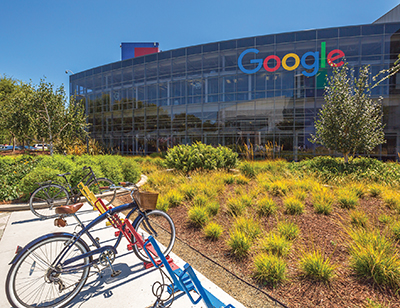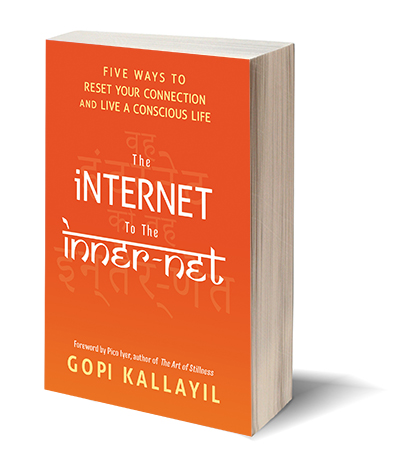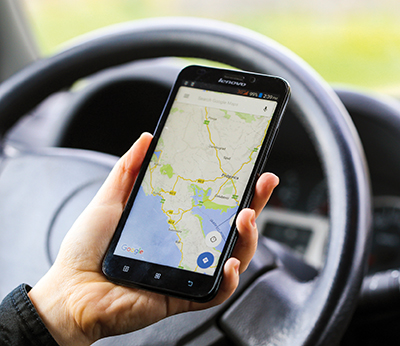As Chief Evangelist for Brand Marketing at Google’s headquarters in Mountain View, California, Gopi Kallayil works with Google’s largest customers to help them build their brands through digital solutions. In that role he uses his Toastmasters skills to present to customers’ leadership teams and facilitate conversations through many channels.
The title “evangelist” is used in tech companies for someone who builds support for a given technology. Before being tapped for his current job, Kallayil was Chief Evangelist for Google+ and led marketing teams for the company’s advertising products Adwords and Adsense. With its intuitive search engine, self-driving cars, Glass wearable computers and history of innovation, Google is a global brand icon that represents a dream job for many. Kallayil has worked for the company for 10 years and says, “Innovation is at the core of what we do. Googlers are passionate about innovation because they have a deep sense of mission—that the work we do matters and is a force for greater good for humanity.”

A Toastmaster for more than 20 years, Kallayil belongs to two clubs: the Lee Emerson Bassett club, which meets at the Graduate School of Business at Stanford University in Palo Alto, California, and the Google corporate club, called I’m Feeling Chatty, that meets at the Googleplex (as the headquarters are known) in Mountain View. He joined to become “a more confident, articulate and persuasive communicator” and says, “It has fundamentally pivoted my life and is one of the best investments I have made in my professional growth. It has led to a great career, personal brand, book deal, etc.” In their book, How Google Works, Google Executive Chairman and ex-CEO Eric Schmidt and former Senior Vice President of Products Jonathan Rosenberg acknowledge Kallayil’s presentation skills: “Gopi Kallayil is not only the best presenter we’ve ever known but a constant critic with insightful improvements.” Having competed in several Toastmasters speech contests, representing District 4 at the 2007 and 2009 Region 2 International Speech Contests, and spoken at TEDx conferences, the Indian native is a master storyteller, often sharing examples of innovative people who make a difference for others.
“Stories are how human beings communicate best,” he says. “When people are listening to a story, they feel happier, safer and a greater sense of empathy. Stories engage more of our brains than a recitation of facts. As [Toastmasters World Champion of Public Speaking] Craig Valentine taught me, Make a point, tell a story.
“This is why across the ages and across cultures, from the parables of Jesus to the sagas of Iceland to the great tales in the Mahabharata in India, humans have used stories to get a point across. We don’t teach our kids using bulleted lists and PowerPoint slides. ... We tell them stories.”
Taking Off After TED Talk
One of Kallayil’s favorite speaking engagements was a 2011 TEDx Talk at the University of California, Berkeley, where he spoke on “The Internet to the Inner-net.” It launched his career as a professional speaker and led to a publishing deal. His resulting book, The Internet to the Inner-net: Five Ways to Reset Your Connection and Live a Conscious Life, has been translated into many languages and opened doors to speaking engagements all over the world.
The book explores how the internet has become “humanity’s invisible central nervous system” that connects people around the globe, yet overwhelms with its instant access to information. In it Kallayil offers tips on how to marry the world of Doing (Actions, Results, Deadlines) with the world of Being (Presence, Spaciousness, Connection). He argues for the integration of technology with self-exploration through meditation. “The most important technology is within us—our brain, body and consciousness.”
“Good communication is a key driver for success at Google.”
— GOPI KALLAYILKallayil balances his fast-paced career with daily yoga and meditation rituals that connect him with the world of spirituality and Eastern philosophy. How does he find the time? “Sometimes I find a quiet moment, seek out a conference room, and practice yoga or meditate. When traveling, I often grab a bath towel and practice yoga in my hotel room. Or meditate on the plane just after takeoff.”
His role as “evangelist” takes him to the corporate boardrooms of well-known brands as well as to institutions such as Stanford University and the Wharton School of Business, and events like the World Peace Festival and the Wisdom 2.0 conference. He hosts a TV program on cable and YouTube called Change Makers and even has produced two music albums in a series titled Kirtan Lounge.
The Meaning of Mindfulness
The term “mindfulness” comes up often around Kallayil: He founded a yoga program for fellow Googlers, called Yoglers, and encourages mindfulness training in the workplace. The term shows up in business school curricula. How does he define it and what business value does it carry?
“In India, where I am from, we practice meditation to go beyond the mind, beyond the illusion of the physical world to our divine essence—to be present to that essence in this world,” he says. “Mindfulness, the fashionable buzzword of the day, is one form of that practice. To be mindful means having your body and mind in the same place and fully present to the activity or experience you are engaged in.”

Karen May, the vice president of people development at Google, says in a Fast Company article, “We want to prepare people for how to deal with the challenges ahead and engage them with solving problems that don’t seem to have solutions.” She says employees not only want to learn how to focus on a task, but also “learn how to clear their minds so they can be more innovative and creative thinkers.”
To that end, Kallayil says one of the most popular training programs at Google, with “a huge waiting list,” is called Search Inside Yourself. Founded by one of the original Google employees, Chade-Meng Tan, it teaches mindfulness-based emotional intelligence. “How we direct our attention determines the mental habits we form, the emotions we develop and the results we experience,” Kallayil says.
As for the business value, he recalls an experience of a speech gone awry. Pay attention to the ending, which may be the reason companies like General Mills, Target and Nike teach and encourage mindfulness practices to their employees.
After getting on stage in front of 400 people to deliver his keynote “Technology for the Greater Good” at a Wisdom 2.0 conference, Kallayil pressed the clicker for his first slide. Nothing happened. “I knew my subject backward and forward, and with my Toastmasters training, I was perfectly at ease,” he recalls. “I rebooted my computer and heard that familiar, reassuring sound that a computer makes when starting. Cha … chaang. Then it gasped and died. Three times I tried it. Three times it started, sputtered and died. Each time a bit of me died with it.”
By this time, he had been on the stage for nine minutes and hadn’t started his talk. “Nine minutes is a very long time when you are standing in front of 400 people,” he points out. He felt the collective audience snicker: Even the Google guy can’t make his technology work for him.
“[Toastmasters] has fundamentally pivoted my life and is one of the best investments I have made in my professional growth.”
— GOPI KALLAYILHe calls it an “American bison moment.” That’s because in that critical moment, he remembered the story told by a colleague from Montana, about how when a storm approaches, the American bison “is the only animal that will turn toward the storm, lean into it, and walk to meet it. It knows instinctively that if it does this, it will be out of the storm sooner. This is why Native Americans call it ‘Faces the Storm.’
“Standing on stage, I decided to do the same. ‘Ladies and gentlemen,’ I said, ‘I came here to talk about the amazing technologies we build at Google. But the most important technology we use in our lives is right here–our body, our breath, our brain. Let me show you how we can use this technology most effectively when challenged by life’s problems. Let me teach you a small breathing and mindfulness technique I am using right now to manage this situation up here on the stage.’”
From that beginning he gave an impromptu keynote about “how to manage our inner technology when our outer technology fails and creates a problem we don’t expect and can’t solve.” It was a live lesson in stress management. He says he felt “a tremendous sense of support and empathy from the audience.” When he finished speaking, he received a standing ovation.
Information Access

From his elevated role at Google, it’s hard to imagine that access to information was once not within his easy reach. Growing up with three siblings in a small town in Kerala, southern India, Kallayil says in a 2016 article on Quartz.com titled “A Google evangelist’s guide to finding the purpose in your career,” that he was always “hungry to learn” and “soaked up knowledge through new friends, new books and reading local newspapers."
Kallayil writes about how he as a college student took a seven-hour train ride to the city of Chennai because it was “the only city in all of southern India where I could access a copy of U.S. News and World Report’s guide to the best graduate schools.”
All told, it took him 24 hours to track down that list in a library, including spending the night in a youth hostel and a seven-hour return train ride. It was worth it, he says, because of “the possibilities of the information I now held in my hands.”
Armed with a bachelor’s degree in electronics engineering from the National Institute of Technology in India, he received Master in Business Administration degrees from the Indian Institute of Management and the Wharton School of Business at the University of Pennsylvania. From there he was hired at international management consulting firm McKinsey & Company, which eventually led to his joining Google.
Kallayil says one of the best things about his job is “that I’m able to help people get their hands on information that broadens their view of the world.”
When visiting his relatives in a village in the Palakkad district of Kerala, including the school where his mother studied, he is struck by the impact of the internet. “Students now have access to the internet—whether in their homes, their friends’ or relatives’ homes, or through their parents’ smartphones. Those kids can access the same information as any student at Stanford or Harvard.”
His one piece of advice to fellow Toastmasters on how to be more connected to their “Inner-Net”?
“Meditate. Every day.”



 Previous
Previous
 Google Clubs
Google Clubs
 Previous Article
Previous Article